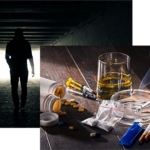Drug rehabilitation centers are essential for helping society members overcome addiction and prevent relapse. A sustained period of sobriety goes beyond the initial treatment. This calls for the development of certain skills, a support system, and enmity with the situations that would provoke a relapse. Here, we address how an inpatient rehab center aids clients with strategies to prevent relapses.
Relapse in the Context of Addiction Recovery
People in recovery understand relapse, a return to drug use after abstaining. Rather than signifying defeat, it serves to underscore an important aspect of many addictions. Brain grooves can trigger relapses via temptations, social situations, and memories. Rehab centers such as the Best Rehabilitation Center in South Kolkata know how complicated relapses can be. They go beyond helping people achieve sobriety by helping them deal with the challenges of relapses even after treatment has been effective.
Skills For Relapse Prevention That Are Enhanced Through Therapy
Counselling is a crucial component of drug and alcohol rehabilitation center programs. Strategies taught in therapy help people recognize triggers and urges and cope without drugs.
1. Cognitive Behavioral Therapy (CBT)
The aim of CBT is to recognize and alter the psychological processes that maintain the dependence drug. This gives them tools to deal with such cognitive and emotional elements. It limits the risks of relapses as you give the person a new perspective in relation to stress and cravings.
2. Mindfulness-Based Therapy
Mindfulness encourages the practice of being in the present and actively noticing the initial stages of stress and craving. This knowledge is helpful in avoiding relapse. it allows an individual to step back and assess their feelings or emotions without becoming a slave to them.
3. Motivational Interviewing (MI)
MI is a counseling technique that increases the individual’s resistance and ability to control behavioral change. It makes them appreciate the fact that there are reasons for staying clean, especially when the situation becomes difficult.
Family Involvement in Relapse Prevention
Sustaining sobriety for any individual recovering from addiction will require the support of family. To facilitate this, most of the rehabilitation centres provide family therapy. It helps families appreciate addiction and how they can assist the patient in the process of healing. By educating families on addiction, they can help individuals recover comfortably and with understanding.
Aftercare Programs: A Path to Long-Term Success
Programs of aftercare are the basic feature of many drug rehabilitation centers, like rehab center in Kolkata. This approach offers continued support and accountability to reduce relapse post-treatment.
1. Sober Living Arrangements
A sober living arrangement helps individuals release themselves from substance abuse while between rehab and normal life. It nurtures individuals to develop skills in a specific environment.
2. Regular Counseling and Check-Ins
The programs of aftercare usually consist of the therapy on an individual basis. It takes place from time to time and has the value of looking back on the activities done and the issues faced. These keep the individual focused, and in a way, they are able to ask for help where necessary.
3. Group Meetings and Alumni Programs
A number of rehabilitation centers run group therapy and rehabilitation alumni associations. Here, former patients participate and voice their experiences and problems. This is a healthy reminder of their resolve to get better and helps them meet others who have also been able to get and remain sober.
Education and Skill Foundations to Build Capacities for Real Life
Relapse prevention incorporates education as well. In rehabilitation, patients realize what addiction is, how it affects the brain, and why some people get cravings after a treatment course. They feel somewhat ready to fight addiction after learning its biological and psychological constitution. Learning skills like stress management, time management, and interpersonal skills helps individuals overcome challenges linked to relapse.
Positive Change in One’s Lifestyle that Aids Recovery
Integrating a healthy lifestyle stands out as another primary strategy for preventing relapses. Most treatment facilities advise patients to practice constructive behaviors that enhance their health, such as engaging in physical exercises, eating healthy, and sleeping adequately. A strong, healthy body can handle more stress, reducing the risk of relapse.
1. Exercise Programs
This is also because physical activity leads to the release of endorphins, hence improving the mood of the person naturally. One of the most effective ways to avoid command and control of one’s internal triggers is through engaging in physical activity.
2. Nutritional Guidance
Most of the emphasis is placed on how the appropriate food and drinks to take help in building the body and mind to assist the person to remain in a good state in the course of healing.
3. Sleep Hygiene
Sleep is restorative and helps in uplifting the mood. Also, it lessens irritability and sharpens concentration. Such clients are usually advised on managing sleep as part of other activities in rehab centers to ensure that every aspect of their lifestyle is addressed.
Locating an Appropriate Rehabilitation Include
As far as the issue of preventing relapse is concerned, it is very important to choose the correct rehab center. The Best Rehabilitation Center in South Kolkata is not only limited to providing therapy; they offer various personalized care services and family therapy, including aftercare. Likewise, a good rehab center will take the same course of action with regards to physical, psychological, and emotional treatment. Therefore, when looking for center, one that focuses on prevention of relapse would enable such people to find care and help that would enable them to establish a strong basis in sobriety.



